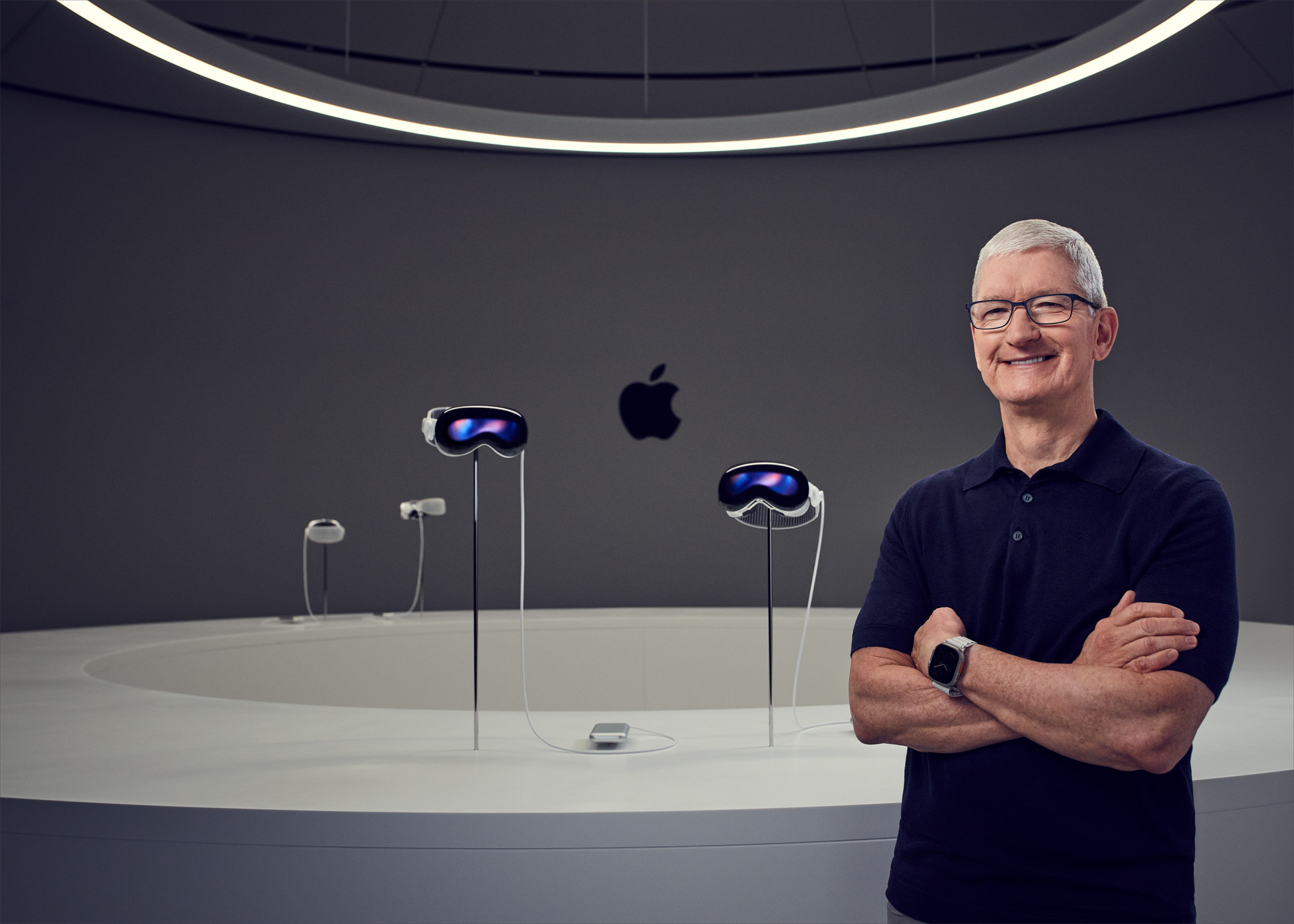Laptop Mag Verdict
The Monoprice 13-in-1 Dual-HDMI + DP MST Dock delivers formidable power, alongside a plethora of ports that can transform even the tamest of I/O offerings into a fully-fledged workstation. While the neat freaks will wince at its awkward layout, everyone can praise it for an awesome and accessible price tag.
Pros
- +
Portable design
- +
Great value
- +
Wide port selection
- +
Impressive 100W Power Delivery
- +
Fantastic triple display support
Cons
- -
Strange port layout leads to clutter
- -
Lightweight design results in movement
Why you can trust Laptop Mag
Monoprice docking stations, much like the rest of the brand’s burgeoning catalog, are impressive devices that partner quality and affordability for great results. The Monoprice 13-in-1 Dual HDMI + DP MST Dock fits snugly into the company’s objectives of affordable, top-tier tech — and it’s ideal for anyone seeking to squeeze as much potential from their laptop or desktop computer as possible.
Monoprice’s dock can be used on Windows or Mac systems to transform a single USB Type-C port into a full spread of display, legacy, audio, and storage inputs. It delivers the best out of your machine and grants you a well-rounded setup..
If you’re shopping around for the right accessory to manage your workstation needs, be sure to check out our selection of the best docking stations to find what’s best for you. If you need something smaller, lighter, and travel-friendly, read on about Monoprice’s dock and check out our run-down of the best USB-C hubs to compare what’s available.
Monoprice 13-in-1 Dual-HDMI + DP MST Dock price and availability
Available at an MSRP of $54.99, you can find the Monoprice 13-in-1 Dual-HDMI + DP MST Dock on the Monoprice website, Target, and Walmart. For a dock that offers 100W of Power Delivery, both HDMI and DisplayPort options for extending your display (supporting up to three external monitors), and a wide assortment of ports to boot, Monoprice’s dock is incredible value for money.
For example, UGreen’s $199 9-in-1 USB-C Docking Station is roughly four times the cost of Monoprice’s dock and offers identical power delivery., but support for only two external displays (although it does feature two HDMI and DisplayPort connections). UGreen’s dock also doesn’t provide nearly as many USB Type-A connections (though the ones it does provide are faster). It also doesn’t include an SD/Micro SD card reader nor a 3.5mm audio jack.
However, UGreen’s dock does provide a USB-C port to reclaim the one lost from your device, and features a more premium design and overall build — and it’s far superior when it comes to cable management. The lack of a hard-wired host cable gives the device much more freedom and flexibility when laying out your setup.
The Monoprice 13-in-1 Dual HDMI + DP MST Dock proves that high quality doesn’t always have to mean high cost, delivering an incredibly laudable price tag that leaves it standing out from the competition.
Monoprice 13-in-1 Dual-HDMI + DP MST Dock design
For everything you can praise Monoprice for on the design of its dock, you can equally raise questions about the same thing. Its thin and lightweight design (measuring 5.5 x 2.2 x 0.65 inches in size and weighing just ~118 grams) makes it a fantastic travel companion, but the same design and lack of any rubber feet cause the dock to shift and move at the slightest tug or nudge when used on a desk.
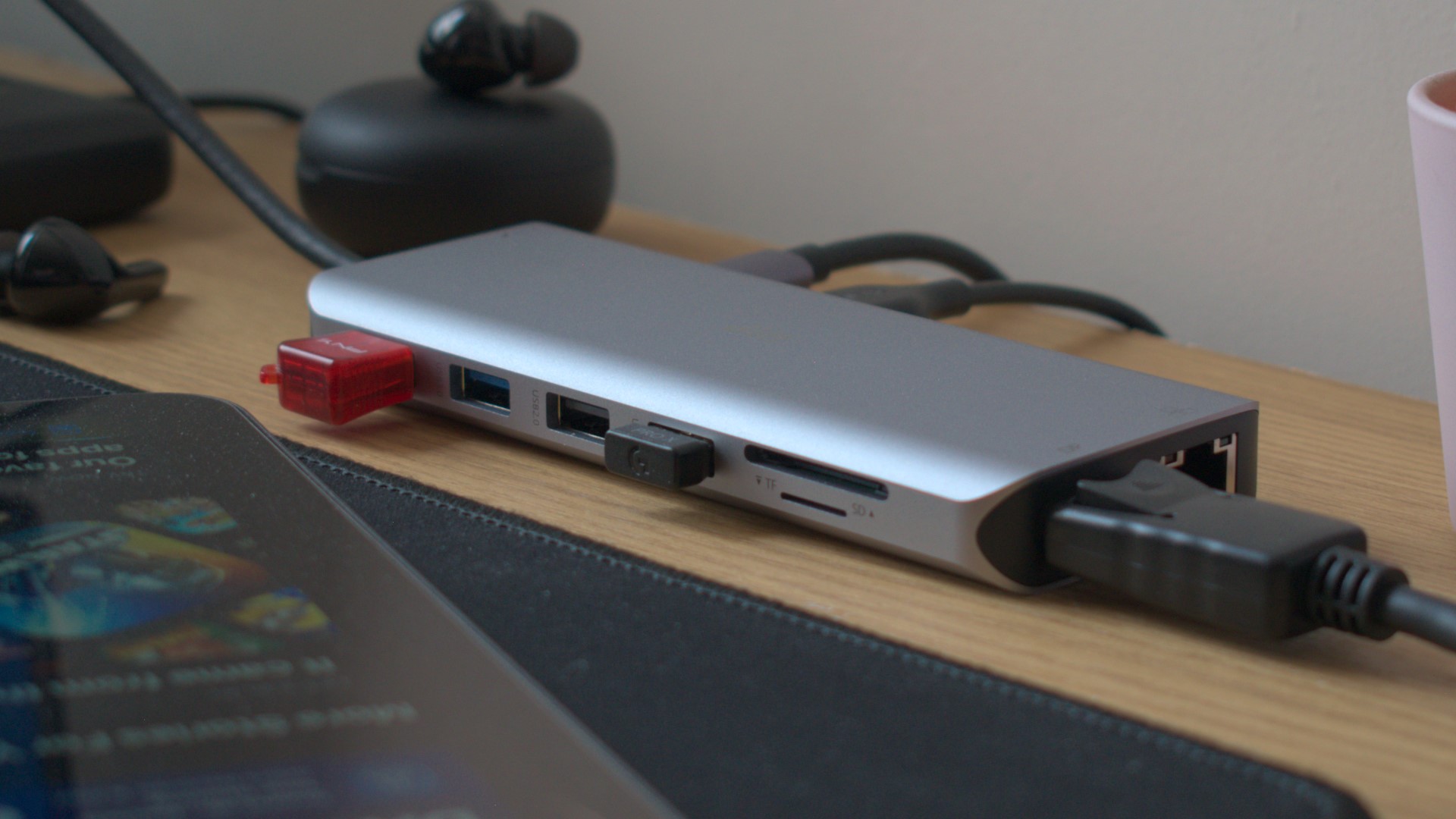
Similarly, the hard-wired host cable is great for travel; you never have to worry about packing an additional cable. It also makes the device a little less durable overall. If that cable (while pretty stiff and sturdy) becomes damaged, the entire dock is rendered useless. Thankfully, Monoprice does offer lifetime warranties for cable issues, but you’d still be without a dock until that gets resolved.
Also, while the amount of ports on offer is fantastically generous, the placement of them is quite puzzling. Judging by the Monoprice logo on top of the dock, the front of the device includes both HDMI ports and the Power Delivery. It’s not exactly a deal breaker to either flip the dock over or turn it around. However, you’re then left with the 3.5mm audio/mic combo jack behind the hard-wired host cable.
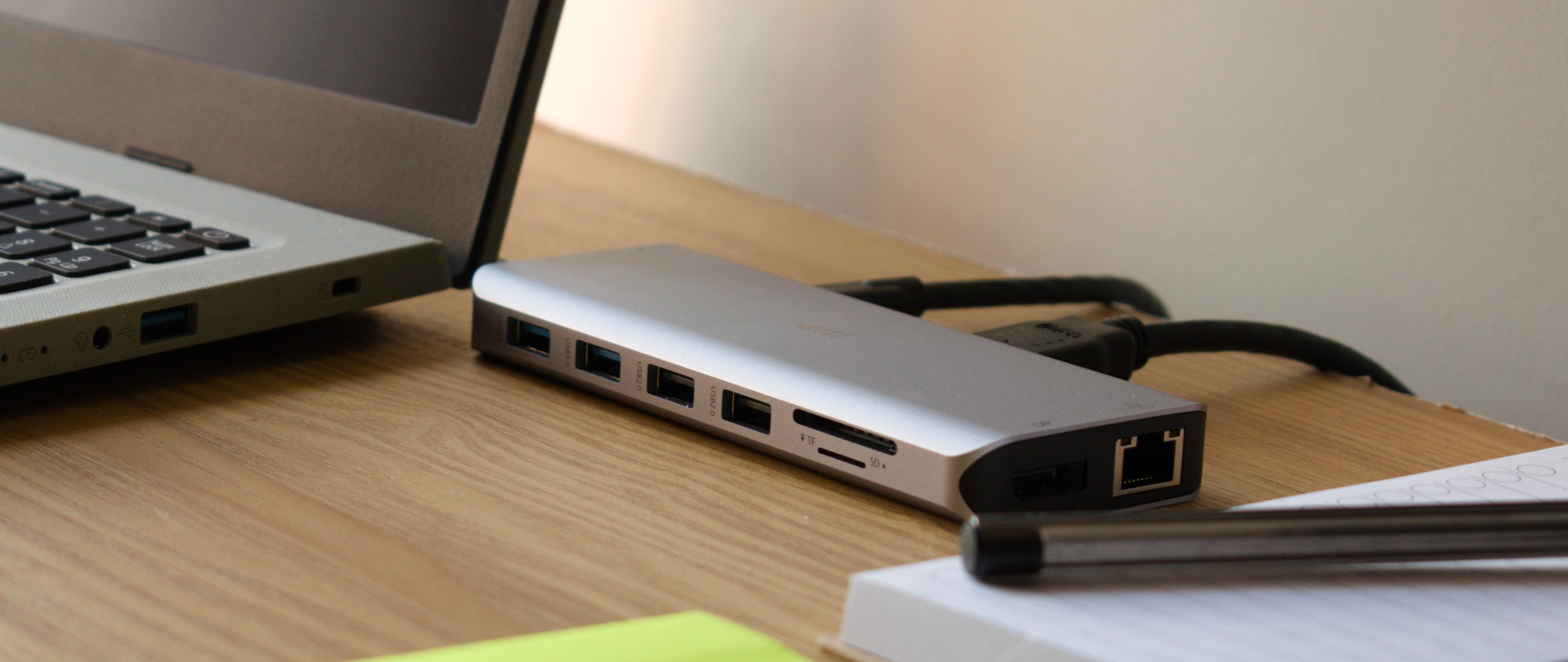
Turn the dock so it’s lengthways and you’ll find that the DisplayPort is now at the front of your desk, with HDMI and Power Delivery cables sprawling to your left. If you turn it the other way, however, the dock is too far back from your machine and difficult to access.
While this might all seem like small fry, I believe one of the key features of a docking station is to help maintain the tidiness of your workspace. While Monoprice’s dock certainly looks the part with its modern aluminum shell and black plastic cutaways, your desktop won’t as you’re left trying to tame the spaghetti junction of cables creeping away in all directions.
Monoprice 13-in-1 Dual-HDMI + DP MST Dock ports and connectivity
Monoprice’s 13-in-1 dock requires a single Type-C USB connection to the host computer in order to function. Once connected, the device can be used as a USB-C hub, drawing power from your device. However, connecting a USB-C charger to the Power Delivery (In) port of the device not only powers the dock, but also provides up to 100W of Power Delivery to the host machine.
The Power Delivery port sits at the “front” of Monoprice’s dock (although which side of the device faces where will be largely dependent on how you connect it to your laptop, and arrange the dock on your desktop), and is joined by a single SuperSpeed USB 3.0 Type-A (5Gbps) port, and two HDMI ports (capable of driving a single 4K external display @ 60Hz, or two 4K displays @ 30Hz). Note: M1 and M2 MacBooks will be limited to extending their display to just one external display.
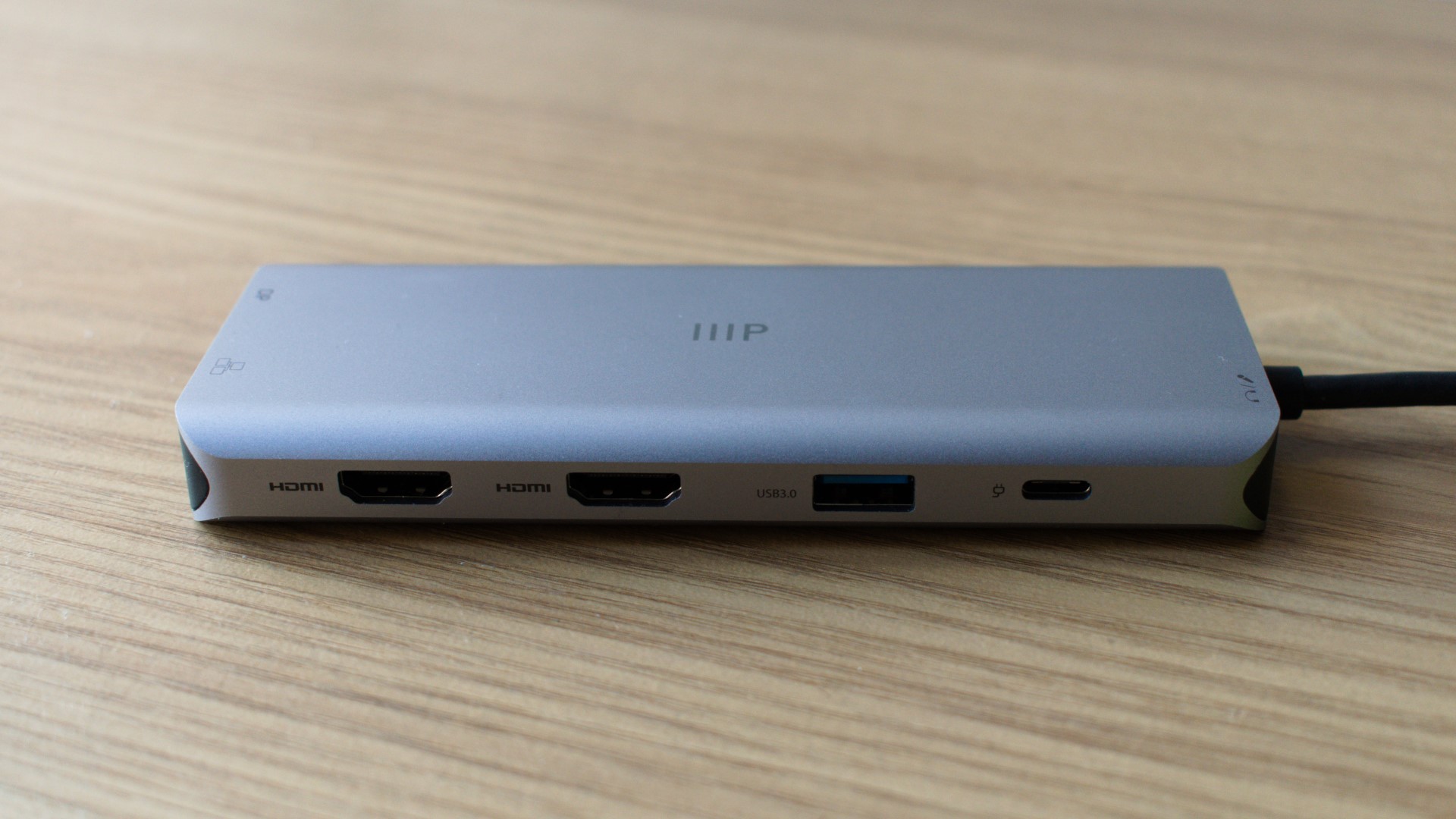
On the right side of the dock, you’ll find a single Gigabit Ethernet port and a singular DisplayPort connection that can drive a single 4K external display @ 60Hz. While there is only one DisplayPort available, you can make use of the DisplayPort Multi-Stream Transport (MST) feature of the dock to connect to an external display, and then daisy-chain the connection to up to two others — with support for three 1080P displays @ 60Hz. (M1 and M2 MacBooks are still limited to a single external display).
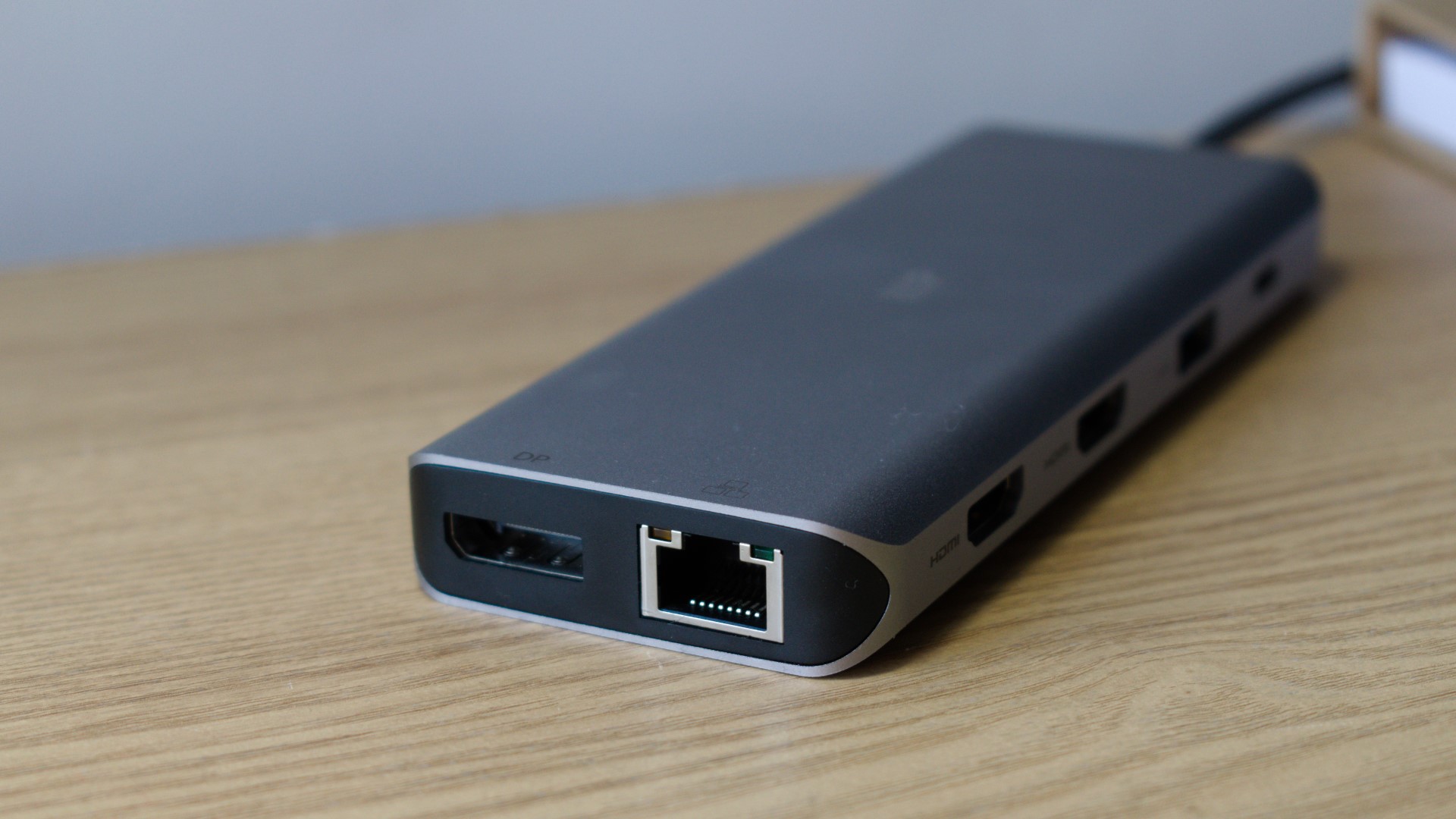
At the rear of the dock, there are two SuperSpeed USB 3.0 Type-A (5Gbps) ports, two USB 2.0 Type-A (480Mbps), and TransFlash/MicroSD and SD card readers.
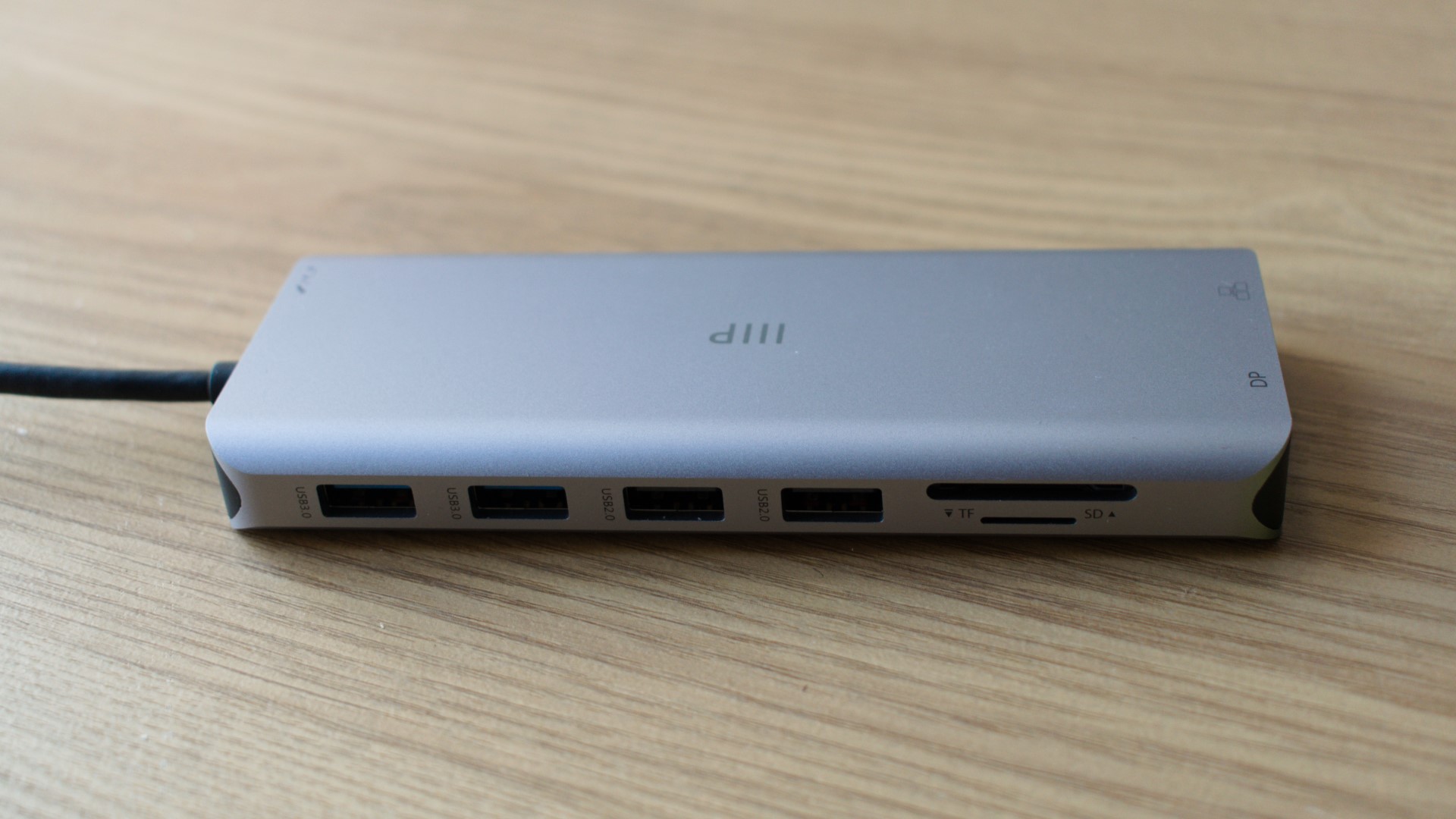
The remaining side of Monoprice’s 13-in-1 dock is where the dock’s wired USB-C host connection cable is to be found with a 3.5mm audio/mic combo jack tucked in neatly next to it.
On the whole, Monoprice’s dock delivers a fantastic assortment of ports without compromising its ability to offer more screen real estate through extended displays (and vice versa). The 13 additional ports it offers deliver incredible versatility to any machine the dock is connected to, with ample room for legacy peripherals, external storage, and wireless receivers.
The only thing truly dividing this dock from some of the far more premium options out there is its lack of higher resolution support or USB4/Thunderbolt offerings but for the price, this is a stellar showing from Monoprice.
Monoprice 13-in-1 Dual-HDMI + DP MST Dock performance
As a plug-and-play device, connect the Monoprice 13-in-1 Dual-HDMI + DP MST Dock to your laptop via the host cable and you’re good to go right out of the box. Mac users will customarily need to install DisplayLink Manager if they’re interested in using an external display. (Lest they fall foul to the Netflix black screen.) However, That aside, Monoprice’s dock is a no-fuss install — at least before you start connecting cables.
If you’re somewhat of a neat freak when it comes to your setup, this is where the majority of your headaches with the dock will come from. Its sporadic port placement and tethered host cable will place a limit on how best to lay things out. Instead of everything being neatly funneled toward the rear of your desk, the dock branches cables out across all four directions, making it a nightmare if you’re a cable managing neat-freak.
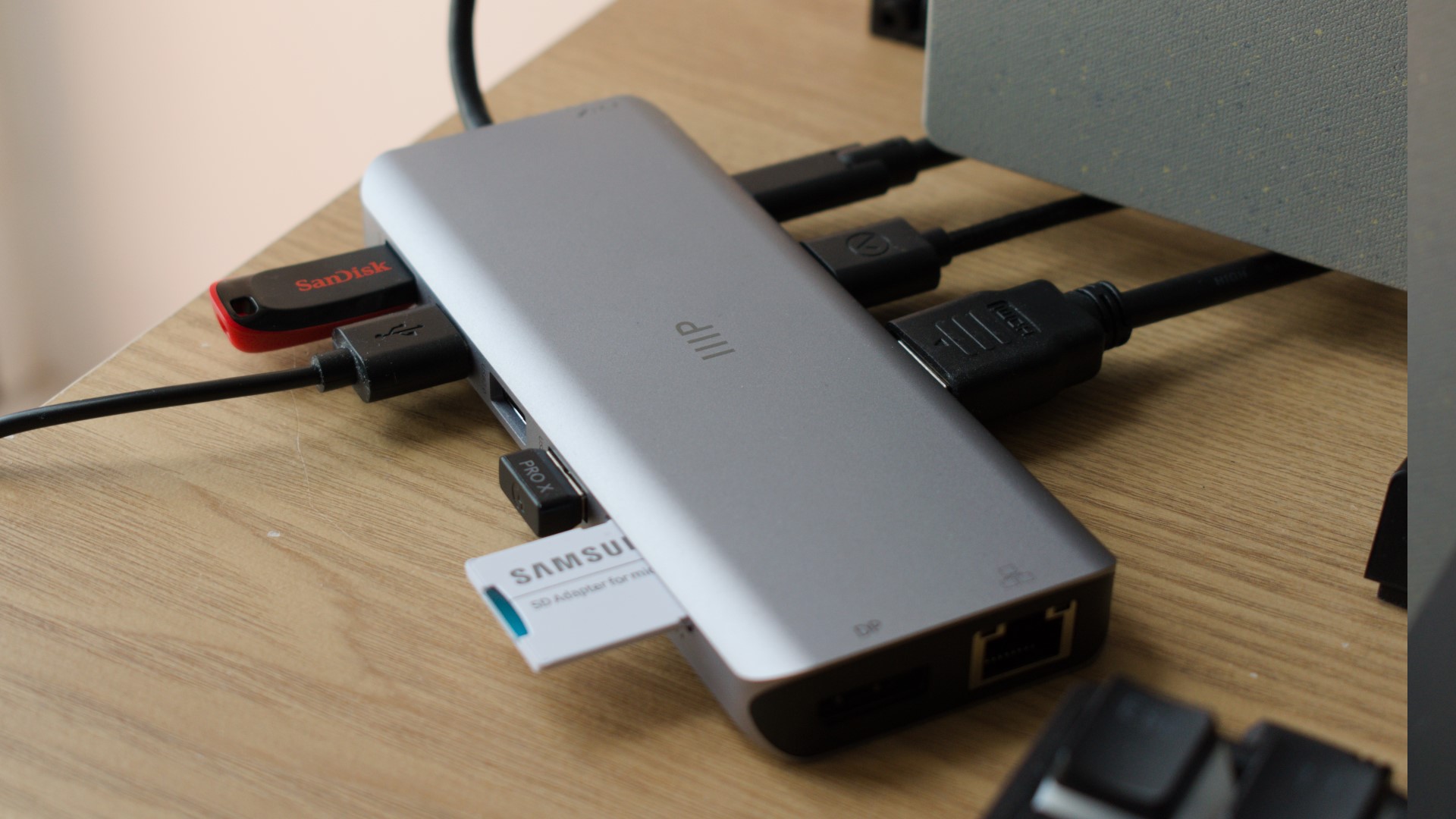
Aside from the dock’s spider-legged appearance when fully stacked, I put that 100W claim to the test and saw it pass with flying colors — providing my laptop with plenty of charge to make it through the day. Even when I really started to tax my power-hungry system, Monoprice's dock kept that percentage crawling higher. There’s no doubt that it took longer than my usual 140W fast-charge power supply would have done, but I was never left short-changed when it came to battery life, so I have no real complaints to make.
I tested both HDMI and DisplayPort connections of Monoprice’s dock to find both ran impressively well. I never had an instance of lag or stutter, even when gaming. The 60Hz refresh rate ensured the images were both responsive and smooth, and there was no noticeable shift from using my laptop's own screen. The dock did feel a little warm after a short while of extending my displays and having a few devices hooked up to it, but in no way was it anything to be concerned about.
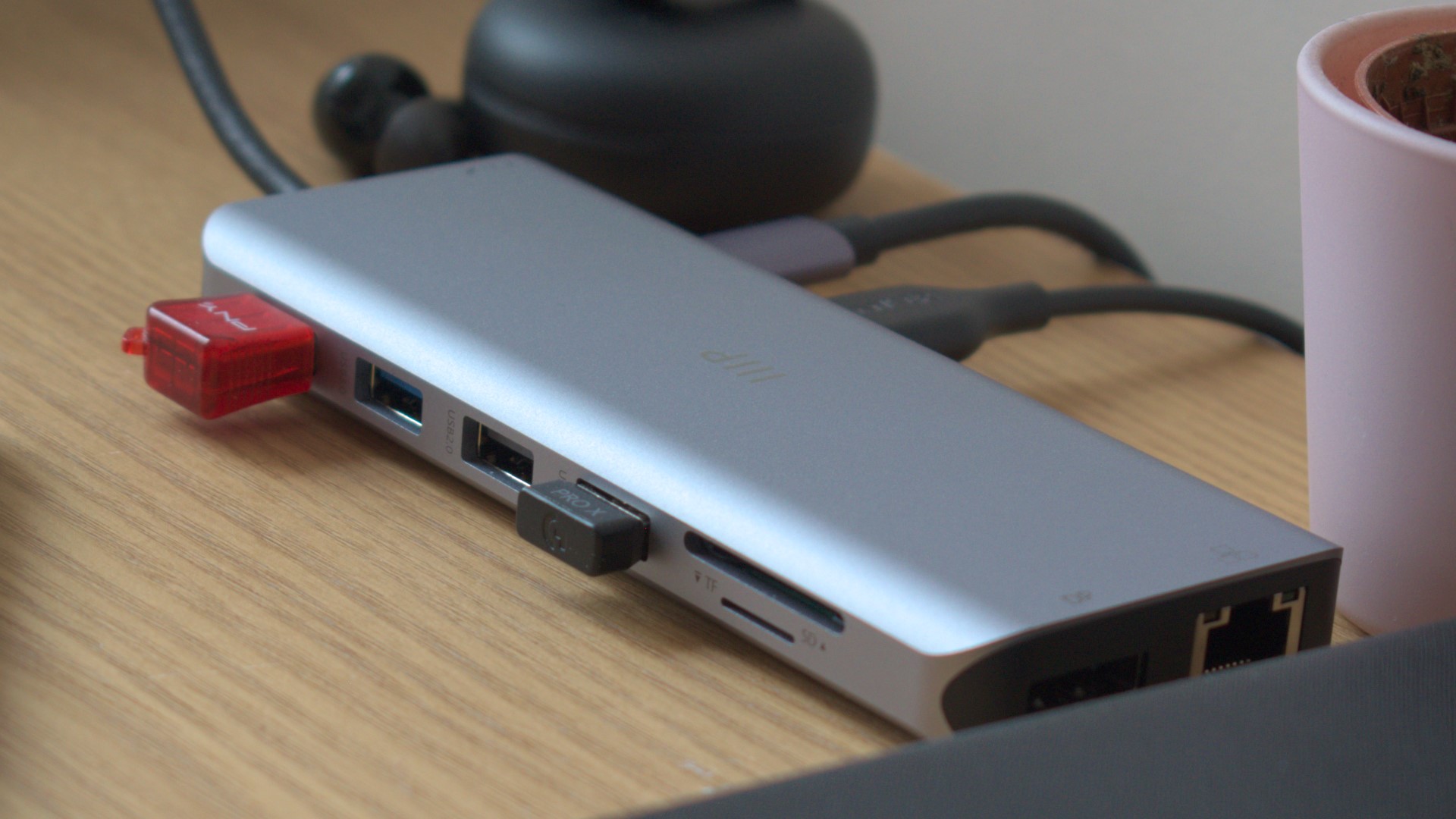
Outlook
The Monoprice 13-in-1 Dual-HDMI + DP MST Dock isn’t just incredible value for money, it’s a fantastic option for any setup that needs more ports and on-screen real estate. If cable management isn’t too much of a bother for you, you’re going to be more than impressed when it comes to Monoprice’s dock.
It’s a premium offering at a fraction of the price — and it performs without a hitch. There’s room for Monoprice to make improvements in the future, with more USB-C or Thunderbolt availability, but for most people, this dock will handle everything you need and more for years to come.

Rael Hornby, potentially influenced by far too many LucasArts titles at an early age, once thought he’d grow up to be a mighty pirate. However, after several interventions with close friends and family members, you’re now much more likely to see his name attached to the bylines of tech articles. While not maintaining a double life as an aspiring writer by day and indie game dev by night, you’ll find him sat in a corner somewhere muttering to himself about microtransactions or hunting down promising indie games on Twitter.
